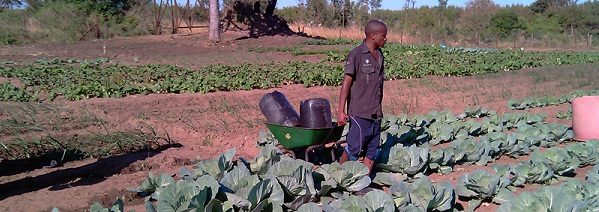By Donato Ndongo, in Malabo, Equatorial Guinea | According to a paper by the United Nations’ Food and Agriculture Organization (FAO) and the International Fund for Agricultural Development, between 2004 and 2010, foreign investors have bought at least 50 million hectares in twenty African countries at ridiculously low prices: Ethiopia, Madagascar, the Democratic Republic of Congo, Kenya, Mozambique, Senegal, Mali, Uganda, Kenya … and in the tiny Equatorial Guinea.
Actively engaged in this business are China, India, the USA, Saudi Arabia, Qatar, Kuwait, Abu Dhabi, Bahrain, Japan, Malaysia, Brazil, Libya, Sweden, Germany and Great Britain. The global crisis favors this type of business: it offers capital (some estimates value these investments in more than$2bn) to countries that have seen a reduction in conventional foreign investment and bilateral or multilateral cooperation. In the investors’ eyes, in Africa there is a lot of extra land that goes to waste and they underline the positive boost that they are injecting into the economy of these countries, especially to their agricultural development.
At the German NGO Welthungerhilfe, Constanze von Oppein and Rafael Schneider, an expert in nutrition and development specialist respectively, share this view partly because they recognize in a report that African agricultural products “often lack access to regional and international markets,” and as a result “foreign investors may be the missing link to connect local structures with business partners.”
However, they also note in their investigation that this recent pattern of investment “is taking away the land from the poorest part of the population,” because it starts by making the “mistake” of considering that there is excess land in many African countries or that the absence of formal documents of purchase means that the land “belongs to no one.” Thus, there is a clash with a basic idea of the African culture: the notion of private ownership of land is completely unknown; land is a communal property par excellence.
Although some sale transactions are conducted between transnational corporations and local governments, the trend is that they take place between governments. In both cases, the conditions are usually unfavorable for the African people. To begin with, they occur in a climate of opacity that causes suspicions about widespread corruption, since African governments do not usually give much explanation about the negotiations and sales. In addition, these negotiations take place in an unfavorable environment for the concerned African populations, who almost never can display titles, often neither understand legal terms of contracts signed.
The immediate consequence is that those affected and expropriated without compensation or any alternative are forced to abandon lands which they have enjoyed since forever, and or gather over filthy slums of crowded cities to barely survive in even more miserable conditions, or undertake the path of emigration, mainly to developed countries.
The situation does not improve for those who stay as laborers in the new estates: they go from being farmers or shepherds, poor but free, to miserable employees with a salary that barely allows them to survive. Therefore, and following the criteria of Alexander Mueller, director of the Department of Environment and Natural Resources of the FAO, “it would be useful to develop guidelines for the governance of land, or a code to regulate international investment, in order to facilitate decision-making and negotiations.”






Be the first to comment on "Foreign investors buy 50mn hectares of African land in six years"